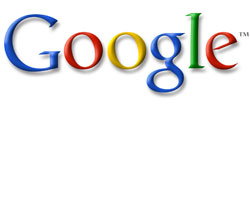The US Federal Trade Commission (FTC) has fined Google $22.5m for monitoring Apple Safari browser users even though they had a "do not track" privacy setting selected.
The fine is the largest to date to be imposed by the FTC on a single company, according to the BBC

According to the settlement agreement, Google does not have to admit any wrongdoing.
The FTC has fined Google for misrepresenting what it was doing, not for the methods it used to bypass Safari's privacy settings.
Google's data privacy woes Google admits to ICO it still has some UK Wi-Fi data Google revises proposals to EC competition authorities Google reports rise in government requests to remove political content ICO reviews Google WiFi snooping investigation following US report
The FTC launched an investigation after a Stanford University researcher reported that Google was bypassing browser privacy settings.
Google was found to be exploiting a Safari browser loophole that enabled it to install monitoring-enabling cookies on websurfers machines through adverts on websites.
This allowed the search giant to track browsing habits without permission, but Google claimed no personal information had been collected.
Google also claimed the action had been "inadvertent," despite the fact that it added code to some of its online ads to make it appear to Safari that the user had made an exception for its cookie.
The firm said the code was a workaround that had been used to help it deploy its +1 button, a feature in its Google+ social network for letting users show their approval for something on the web.
As part of the settlement with the FTC, Google said it would take steps to remove the ad cookies.
The FTC said the settlement was part of its ongoing efforts to make sure companies lived up to the privacy promises they made to consumers.
Privacy groups have welcomed the FTC's action against Google, saying it is vital that any organisation that seeks to override consumer choices about sharing their data is held to account.
"It's an essential part of a properly functioning market that consumers are in control of their personal information and are able to take steps to protect their privacy," said Nick Pickles, director of Big Brother Watch.
"The size of the fine in this case should deter any company from seeking to exploit underhand means of tracking consumers," he said.
But the Association for Competitive Technology, which represents small tech companies, said the fine represented a small fraction of Google's profits, according to the Financial Times.
"It is clear that the biggest fines aren't a deterrent if it only takes [five hours of revenues] to pay them off and the perpetrator never even has to admit guilt," the group said.



